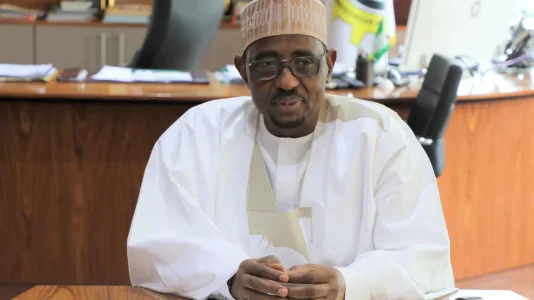
Minister Festus Keyamo denounced Nigeria Air as a fraudulent venture, and suspended it indefinitely. Allegations of foreign influence and lack of transparency cast shadows over the ambitious project. Despite setbacks, Keyamo highlights efforts to boost the aviation sector, including cargo flight resumption and clearing trapped funds of foreign airlines.
In a startling revelation during the Ministerial Sectoral Update held in Abuja, Festus Keyamo, the Minister of Aviation and Aerospace Development, denounced the Nigeria Air national carrier project as a sham, branding it a "fraud" perpetuated under the previous Muhammadu Buhari-led administration. This declaration comes as a blow to hopes pinned on the ambitious initiative, which had been touted as a symbol of national pride and a catalyst for economic growth.
Addressing journalists on the sidelines of the event commemorating President Bola Tinubu's first year in office, Keyamo minced no words in his assessment of the ill-fated project. He lambasted the lack of transparency surrounding the venture, decrying it as "anti-Nigeria" and riddled with fraudulent practices. According to Keyamo, the 'national carrier' purported to uplift Nigeria's aviation industry was nothing more than a facade, with Ethiopian Airlines allegedly pulling the strings behind the scenes.
"It was never Air Nigeria," Keyamo asserted, "It was Ethiopian trying to fly our flag." He emphasized the need for genuine indigenous participation in such ventures, criticizing the involvement of foreign entities at the expense of local stakeholders. With candor, he revealed that the project, shrouded in secrecy, had been indefinitely suspended due to its dubious nature.
Keyamo's revelations cast a shadow over the grand aspirations associated with the Nigeria Air project, underscoring the challenges and pitfalls inherent in large-scale infrastructural endeavors. The fallout from this revelation is likely to reverberate across the aviation sector, prompting questions about accountability and transparency in government projects.
Despite the setback, Keyamo struck a note of optimism as he outlined measures to bolster economic development in the aviation industry. Highlighting the resumption of cargo flights as a significant milestone, he underscored the potential for Nigeria to tap into the lucrative global cargo market, estimated at a staggering $6 trillion annually.
Moreover, Keyamo offered reassurances regarding the resolution of longstanding issues plaguing the sector, including the clearance of trapped funds belonging to foreign airlines. His administration's commitment to supporting local airlines and leveraging bilateral agreements to maximize opportunities further signals a determination to navigate the challenges and realize the full potential of Nigeria's aviation sector.




